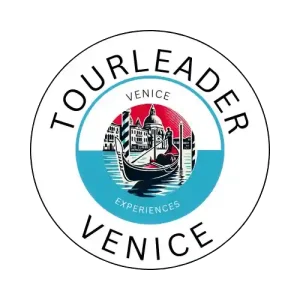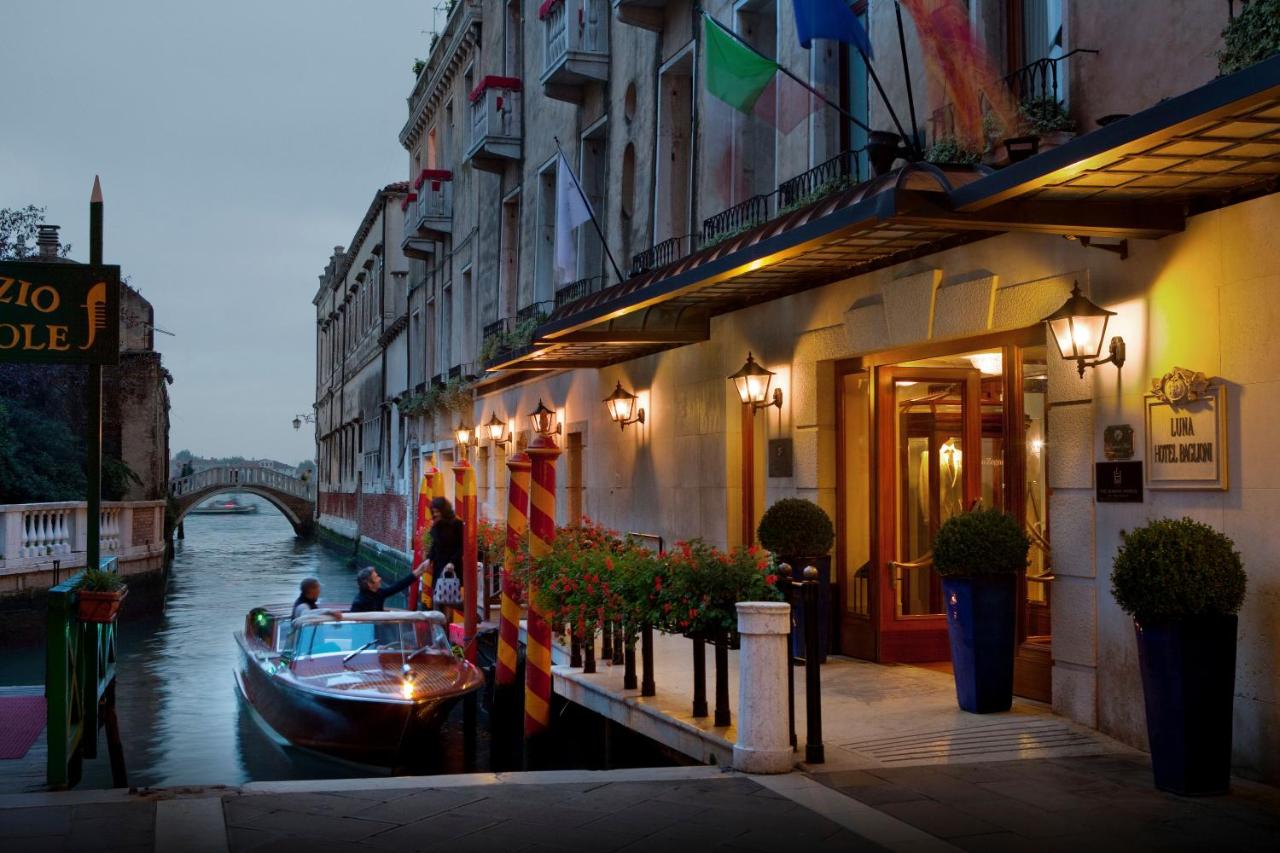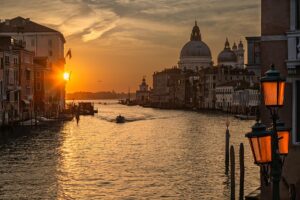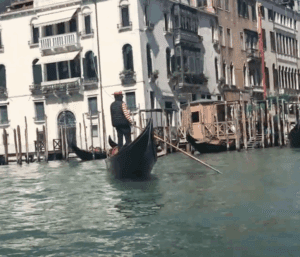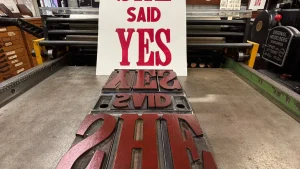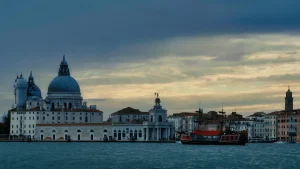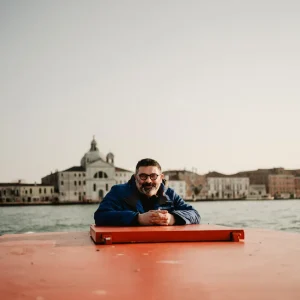🚤 Does Every Venetian Have a Boat? The Truth About Life in a Floating City
In most cities you ask, “What kind of car do you drive?” In Venice, the question has a twist: “So… do you have a boat?”
Because here, cars don’t exist. The lagoon is our highway, canals our side streets, and boats — well, they’re everything. Yet contrary to popular belief, not every Venetian owns one. Some do, many don’t — but every single person depends on them daily.
Let’s dive beneath the postcard surface and see how Venetians really move, work, and live on water — and how you can experience this extraordinary rhythm yourself.
1️⃣ Venice: The City Without Cars
Step off the train at Santa Lucia Station and something feels… quiet. No engines. No horns. No scooters weaving through traffic. Just footsteps and water.
Venice runs on two things:
- 🛶 Streets = calli — narrow pedestrian alleys
- 🌊 Main avenues = canals
- 🚤 Highways = the Grand Canal and lagoon
Everything — groceries, mail, even construction cranes — arrives by boat first, then handcart second. To live here is to live by tides, reflections, and oars instead of tires.
Curious how this system evolved? Read How Venice Was Built on Water.
2️⃣ Who Actually Owns Boats in Venice?
Owning a boat in Venice isn’t universal — it’s lifestyle-based. Think of it like cars in New York City: possible, but not essential.
- 🏝️ Islanders on Murano, Burano, Giudecca & Lido — usually own small motorboats; they’re daily transport.
- 🏙️ Historic-center residents — mostly walk or use public boats (vaporetto).
- 🎣 Workers — fishermen, taxi skippers, artisans rely on boats for their trade.
- 👵 Older Venetians — often prefer public routes: fewer worries, same view.
So, no — not everyone owns one. But every Venetian depends on boats every single day.
3️⃣ The Vaporetto — Venice’s “City Bus” on Water
For most locals, the vaporetto is their car. These public waterbuses connect every neighborhood, island, and the mainland with reliable routes and monthly passes.
Children ride them to school, artisans to workshops in Murano, chefs to markets near Rialto. It’s Venice’s social bloodstream — equal parts commute and community.
Want to try it like a local? Get your Vaporetto Pass here and drift through the city’s veins.
4️⃣ Private Motorboats — The Venetian Family Car
Some families do keep a small motorboat — the Venetian version of a hatchback. It offers freedom to roam the lagoon, visit relatives, or haul groceries from the mainland.
Common uses:
- Quick weekend trips to the islands or Prosecco Hills
- Fishing and picnics on the lagoon
- Transporting furniture or tools
But owning one is costly: mooring fees, fuel, maintenance, and the eternal hunt for docking space. Many Venetians simply rely on the vaporetto and rent or borrow boats when needed.
Want to experience it minus the maintenance? Join our Private 1-Hour Boat Tour of the Grand Canal and Hidden Canals.
5️⃣ Gondolas — Work, Not Hobby
Few symbols scream “Venice” louder than the gondola — but no, Venetians don’t keep them for weekend rides.
- 🎓 Gondoliers are licensed professionals.
- 🪶 Each gondola is handcrafted and assigned to one gondolier.
- 💼 Families don’t “own” them privately — they’re working vessels, not leisure toys.
These sleek black boats are cultural heritage, not status symbols. To feel their quiet grace, book our Private Gondola Ride — same beauty, zero clichés.
6️⃣ Delivery Boats — Venice’s Floating Trucks
Forget vans. In Venice, deliveries arrive by boat. From Amazon packages to fresh vegetables, everything enters via canals.
Goods land at Tronchetto or Piazzale Roma, then small motorboats fan out through the city. Porters unload cargo onto handcarts, balancing boxes across bridges like tightrope artists.
This daily ballet keeps Venice alive — proof that logistics can be poetry.
See how it works in detail in How Deliveries Work in Venice.
7️⃣ Water Taxis — The Venetian Limousines
Polished mahogany, leather seats, engines that purr — water taxis are Venice’s luxury rides. Locals use them for weddings, emergencies, or airport transfers.
They’re pricey but unforgettable — especially at sunset when the lagoon turns gold.
Book a Private Water Taxi Transfer for a stress-free (and glamorous) arrival.
8️⃣ Boats That Save Lives — Ambulance, Police & Fire
In Venice, even emergencies float.
- 🚑 Ambulance boats race through canals 24/7.
- 🚓 Police boats patrol speed limits and maritime safety.
- 🔥 Firefighter boats carry pumps, ladders, and hope.
The lagoon is both beauty and responsibility — these fleets prove it’s possible to live safely atop the sea.
9️⃣ Why Not Everyone Owns One: The Real Costs
Boat ownership sounds romantic until you add the math:
- ⛽ High fuel prices
- ⚓ Limited mooring spots
- 🛠 Relentless maintenance thanks to salt and tides
Between cost and convenience, many Venetians choose public transport — or simply share boats among friends.
🔹 10️⃣ Islands vs. Historic Center
Lagoon islands like Murano, Burano, Pellestrina & Lido = boat culture central. Families own one or two and teach kids to steer before they can drive.
Historic Venice = more walking, better vaporetto coverage, fewer private boats.
To witness both worlds, join our Private Island-Hopping Tour — a full day exploring Murano, Burano, and Torcello by traditional boat.
11️⃣ A Day in the Life of a Venetian Family
Morning tides, afternoon deliveries, evening reflections. Here’s how a typical day might flow:
- 👨🏭 Father — takes his boat to a glass studio in Murano.
- 🛒 Mother — rides the vaporetto to Rialto Market.
- 🎒 Kids — sail to school with friends.
- 📦 Groceries — delivered by boat right to their canal.
Even without owning a boat, their entire life moves with the tides — proof that community beats convenience.
12️⃣ The Romance vs. Reality of Boat Life
To travelers, boats mean sunsets and spritz. To locals, they also mean fog, fuel bills, and low-tide frustration. Venetians endure all of it with stoic humor — because water isn’t background here, it’s identity.
Want to experience that rhythm without the headaches? Try our Venetian Rowing Experience — you’ll glide through quiet canals exactly as Venetians have for centuries.
13️⃣ The Future of Boats in Venice
Change is coming — thoughtfully. The city is testing:
- ⚡ Electric boats to cut noise and pollution
- 🚫 Limits on oversized vessels to protect the lagoon
- 🗺 Expanded public routes for outer neighborhoods
Progress floats slowly here — but it floats.
14️⃣ Why This Question Matters
Asking “Does every Venetian have a boat?” isn’t trivial — it reveals how this city works.
Watch the lagoon long enough and you’ll see its pulse:
- Delivery boats gliding at dawn
- Ambulance waves parting the canal
- Vaporetto skippers greeting gondoliers mid-turn
That rhythm is Venice’s heartbeat — centuries old, still beating.
15️⃣ Experience Venice’s Boat Culture with Tour Leader Venice
We don’t just show you canals — we show you how they breathe. Our private tours reveal the working soul behind the postcards:
- 🛍 How deliveries happen entirely by boat
- 🚣♂️ Where traditional boatyards and oar-makers survive
- 👪 How families commute, shop, and celebrate on water
Choose your experience:
- Private Boat Tour — Grand Canal + hidden channels
- Row Like a Venetian
- Lagoon Discovery Tour
🌊 Book Your Private Venice Boat Experience Now
🏁 Conclusion — Venice’s True Vehicle: The Boat
So, does every Venetian have a boat? No — but every Venetian lives by boats.
From morning deliveries to midnight rescues, from wedding taxis to children’s commutes, boats are the veins of this living city. Some Venetians own them; all Venetians need them. That’s the secret to understanding Venice — she isn’t built on water, she’s built with it.
And when you join us on the lagoon, even for an hour, you’ll feel that heartbeat too.
🚤 Explore Venice with Real Locals — Book Your Tour Today
❓ FAQs — Boats & Life in Venice
Do all Venetians own a boat?
No. Many rely on public vaporetti or shared boats. Ownership depends on where they live and what they do. Learn how life flows in our Private Boat Tour.
What types of boats do Venetians use?
Vaporetti, delivery boats, water taxis, gondolas, and small motorboats. Even ambulances and police operate on water.
How can visitors experience real Venetian boat life?
Join sustainable, small-group tours such as our Rowing Experience or Sunset Bragozzo Cruise to feel the city’s rhythm like a local.
